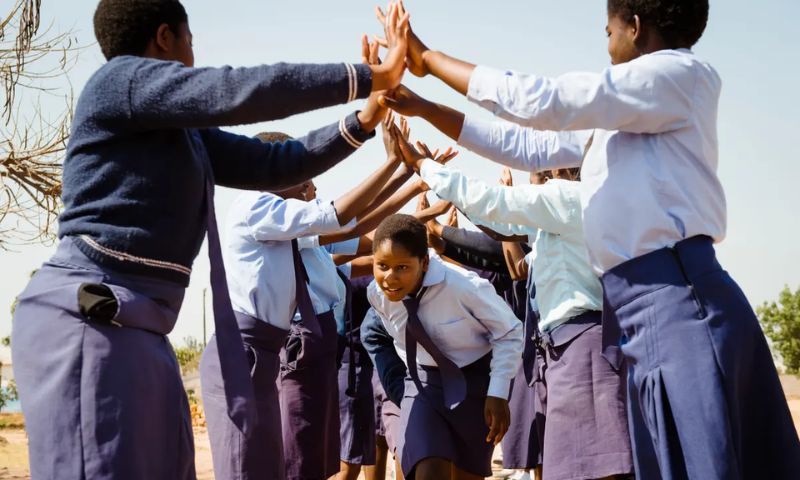LONDON: In the wake of a relentless cost-of-living crisis that has pushed many girls in Africa towards low-paying jobs or early marriages, Camfed, a leading charity organization working in five African countries, has issued a powerful call to action.
The organization is urging governments and donors to intensify their efforts to re-engage girls in education, emphasizing that the ongoing struggle has limited the opportunities available to these young girls.
The ongoing Covid-19 pandemic, combined with rising food and energy costs, has taken a severe toll on access to education for children in Africa. As a result, many girls have been forced to forgo schooling, compromising their chances of acquiring skills and an independent income. To address this pressing issue, Camfed’s CEO, Angeline Murimirwa, is championing a comprehensive plan that seeks to raise $414 million (£342 million) to bring education back to the forefront for millions of girls.
Camfed’s remarkable track record spans three decades and includes supporting 1.8 million girls into secondary education, as well as helping 6.4 million boys and girls into primary and secondary schools across Ghana, Malawi, Tanzania, Zambia, and Zimbabwe. Now, the organization is determined to extend this impact even further by supporting an additional 5 million girls into secondary school by the end of 2029. Additionally, Camfed plans to empower women from previous cohorts by helping them enter the workforce and leadership positions.
The success of Camfed’s approach lies in its partnership with a network of 7,000 government schools, which has resulted in a significant increase in girls completing their education. The completion rate in these schools is three times higher than that of girls in other institutions. Moreover, the program has led to enhanced self-esteem among girls, delaying the age at which they marry and have their first pregnancy.
Angeline Murimirwa, who herself was supported by Camfed during her education, shared from Malawi that the charity has played a pivotal role in preventing high dropout rates during the pandemic. She explained, “Over 90% of girls were able to re-enter education after Covid restrictions were lifted because we monitored them, stayed in touch, and helped them return.”
However, despite these efforts, many countries still face the challenge of a low proportion of girls completing their secondary education. In Zambia, for example, only 3% of girls complete this stage, and cultural prioritization of early marriage remains a significant barrier.
Globally, Unicef estimates that 129 million girls are currently out of school, including 32 million of primary school age and 97 million of secondary school age. The international community, including Western governments and organizations such as the World Bank, recognizes the immense benefits of educating girls, not just in the countries where Camfed operates.
Efforts to inspire and engage young girls in various fields have also gained momentum. Initiatives like the “Festival of the Girl” in London have aimed to introduce girls between the ages of 7 and 11 to careers in software coding and medicine, fostering body positivity and encouraging girls to explore diverse career paths. In Goa, India, initiatives have emerged to enhance the standing of girls in society and combat the trend of female foeticide.
The importance of educating girls in the developing world cannot be overstated. Studies, such as a 2018 report from the World Bank, indicate that limited educational opportunities for girls result in a staggering loss of productivity and earnings for countries, estimated at between $15 trillion and $30 trillion. Additionally, well-educated women tend to have better knowledge of nutrition and healthcare, fewer children, and healthier offspring.
Camfed’s work has been supported by the UK Foreign, Commonwealth, and Development Office (FCDO), which has funded programs benefitting over 600,000 girls. Andrew Mitchell, a minister at FCDO, expressed pride in the achievements made so far and underlined that “girls’ education is the best way to eliminate poverty.” The success story of Angie Murimirwa’s journey to CEO of Camfed serves as a compelling testament to the transformative power of education for girls in Africa.

























